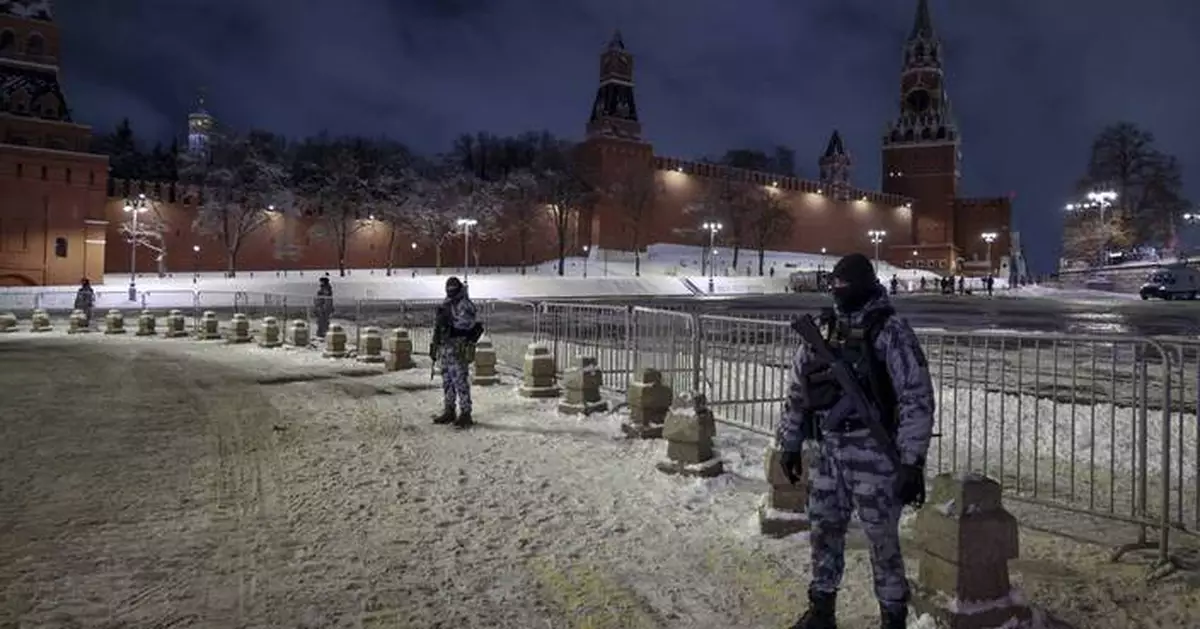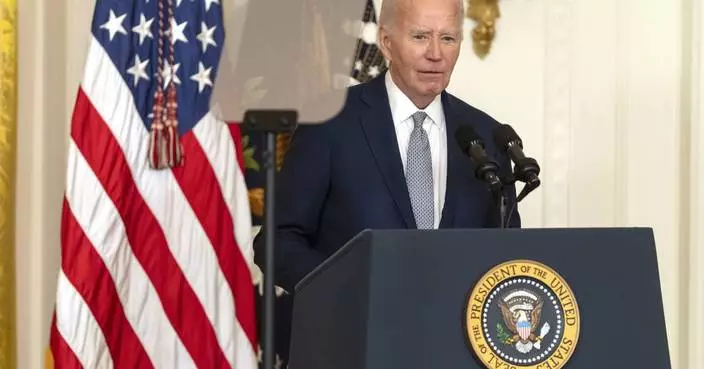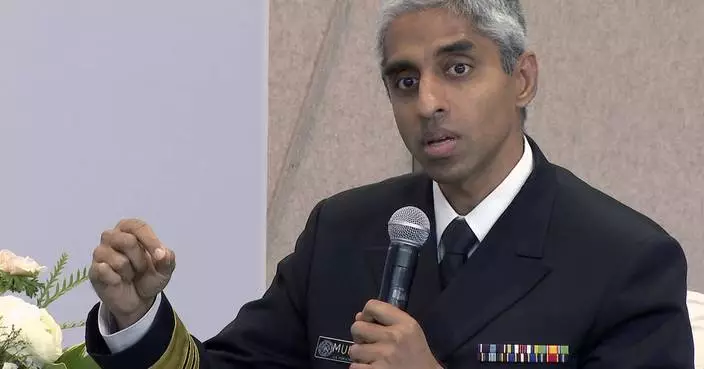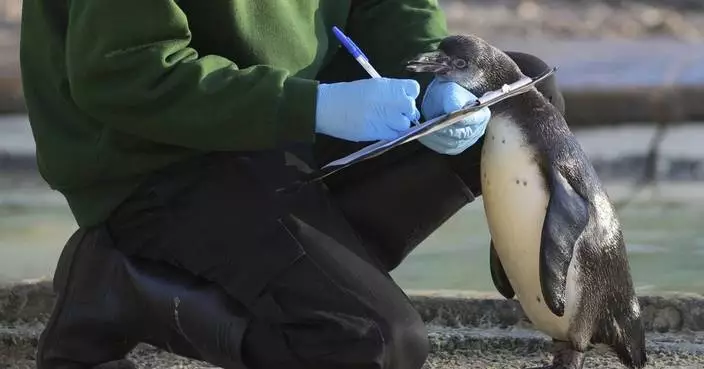WASHINGTON (AP) — The United States has imposed sanctions on two groups linked to Iranian and Russian efforts to target American voters with disinformation ahead of this year's election.
Treasury officials announced the sanctions Tuesday, alleging that the two organizations sought to stoke divisions among Americans before November's vote. U.S. intelligence has accused both governments of spreading disinformation, including fake videos, news stories and social media posts, designed to manipulate voters and undermine trust in U.S. elections.
“The governments of Iran and Russia have targeted our election processes and institutions and sought to divide the American people through targeted disinformation campaigns,” Bradley T. Smith, Treasury's acting undersecretary for terrorism and financial intelligence, said in a statement.
Authorities said the Russian group, the Moscow-based Center for Geopolitical Expertise, oversaw the creation, financing and dissemination of disinformation about American candidates, including deepfake videos created using artificial intelligence.
In addition to the group itself, the new sanctions apply to its director, who authorities say worked closely with Russian military intelligence agents also overseeing cyberattacks and sabotage against the West.
Authorities say the center used AI to quickly manufacture fake videos about American candidates created scores of fake news websites designed to look legitimate and even paid U.S. web companies to create pro-Russian content.
The Iranian group, the Cognitive Design Production Center, is a subsidiary of Iran’s paramilitary Revolutionary Guard, U.S. officials said, which the United States has designated a foreign terrorist organization. Officials say the center worked since at least 2023 to incite political tensions in the United States.
U.S. intelligence agencies have blamed the Iranian government for seeking to encourage protests in the U.S. over Israel’s war against Hamas in Gaza. Iran also has been accused of hacking into the accounts of several top current and former U.S. officials, including senior members of Donald Trump’s campaign.
In the months ahead of the election, U.S. intelligence officials said Russia, Iran and China all sought to undermine confidence in U.S. democracy. They also concluded that Russia sought to prop up the ultimate victor Trump, who has praised Russian President Vladimir Putin, suggested cutting funds to Ukraine and repeatedly criticized the NATO military alliance.
Iran, meanwhile, sought to oppose Trump's candidacy, officials said. The president-elect's first administration ended a nuclear deal with Iran, reimposed sanctions and ordered the killing of Iranian Gen. Qassem Soleimani, an act prompting Iran’s leaders to vow revenge.
Russian and Iranian officials have rejected claims that they sought to influence the outcome of the 2024 election.
“Russia has not and does not interfere with the internal affairs of other countries,” a spokesperson for Russia's embassy in Washington wrote in an email Tuesday.
A message left with officials from Iran was not immediately returned Tuesday.
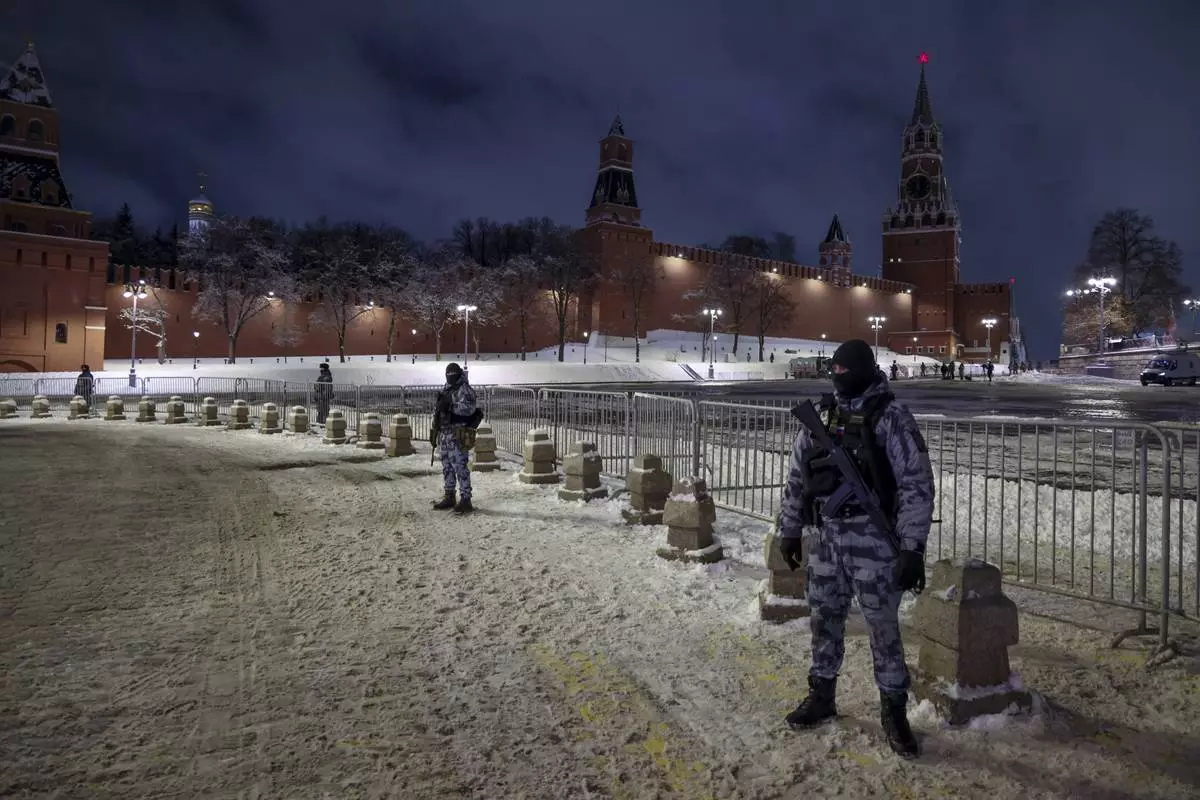
Servicemen of Rosguardia (National Guard) guard an area near Red Square prior to celebrating the New Year's Day, in Moscow, Russia, Tuesday, Dec. 31, 2024. (AP Photo)
ROME (AP) — The fate of an Italian journalist detained in Tehran and an Iranian engineer imprisoned in Italy on a U.S. warrant grew even more intertwined Friday as the Iranian awaits possible extradition to the United States to face charges he provided drone technology to Iran’s elite Revolutionary Guard corps.
A Milan court scheduled a hearing for Jan. 15 to decide whether to keep Mohammad Abedini at Milan’s Opera prison or grant him house arrest pending the start of the lengthy extradition process.
The U.S. government hasn't commented publicly on Abedini's petition, but in the past it has complained to Italy's justice ministry about a half-dozen cases of suspects wanted by the U.S. who escaped from the Italian justice system before they could be extradited.
On Friday, lawyer Alfredo De Francesco visited Abedini in prison and said his client had asked him about Cecilia Sala, an Italian reporter detained in Tehran just days after Abedini was arrested at Milan’s Malpensa airport on a U.S. warrant.
Italian commentators have speculated that Iran is holding Sala as a bargaining chip to ensure Abedini’s release, and both governments have linked their fates to one another in public statements.
“He asked me to write the name of Cecilia Sala on a piece of paper we had with pen, so that he could correctly pronounce her name,” De Francesco told reporters outside the prison. “And he told me that he would pray a lot for her and himself in these days.”
He said Abedini had heard about Sala’s case inside the prison and didn’t understand any connection to him. The lawyer stressed that on the surface the two cases are separate.
“He asked me if she had been arrested and how she had been arrested, and why in some way they wanted to connect her to him,” the lawyer said. “I explained the situation to him, even what is said on television, because it is useless to deny it, but I explained to him.”
“He was very moved by this thing, to know that she is a woman in prison right now, and so he prays for her, for him,” he said.
Sala, a reporter for the Il Foglio daily, was detained in Iran on Dec. 19. She had arrived in the country on Dec. 13 on a journalist visa and was arrested on charges of violating the laws of the Islamic Republic, the state-run IRNA news agency said.
On Dec. 16, the U.S. Justice Department announced charges against Abedini and another Iranian citizen accused of supplying the drone technology to Iran that was used in a January 2024 attack on a U.S. outpost in Jordan that killed three American troops. Abedini was detained that day at Milan’s Malpensa airport on a U.S. warrant seeking his extradition.
U.S. federal prosecutors charged Abedini and his co-defendant with export control violations after FBI specialists analyzed the drone navigation system used in the Jordan attack and traced it to them. U.S. prosecutors said Abedini’s Tehran-based company manufactures navigation systems for the military drone program of Iran’s paramilitary Revolutionary Guard.
Iran’s embassy to Italy has connected Sala’s fate to that of Abedini, saying in a statement posted to X that it will respect Sala’s rights and expects Italy to do the same for Abedini.
“It is reciprocally expected from the Italian government that, in addition to expediting the release of the detained Iranian citizen, he will be provided with the things he needs,” said the statement, which was issued after Ambassador Mohammadreza Sabouri was summoned to the Italian Foreign Ministry for consultations Thursday.
Iran added that it considered Abedini was being held on “false charges.”
The delicate diplomatic triangle poses something of a headache for the government of Premier Giorgia Meloni, which is still stinging from the embarrassment of having lost track of another high-profile target wanted by the U.S.
Russian businessman Artyom Uss, wanted by the U.S. on alleged sanctions violations, escaped from Italy in 2022 after he was granted house arrest, despite warnings from the U.S. that he was a flight risk.
Uss, the son of a Russian regional governor, later resurfaced in Russia. Meloni acknowledged at the time that there were grave “anomalies” in the handling of his case and ordered an investigation.
Milan’s general prosecutor, Francesca Nanni, has opposed Abedini’s motion for house arrest, saying he’s a flight risk and that not even guarantees from Iran’s consulate in Milan were sufficient to ensure he wouldn’t disappear.
The issue could come up next week when Meloni hosts President Joe Biden on his final foreign trip before leaving office.
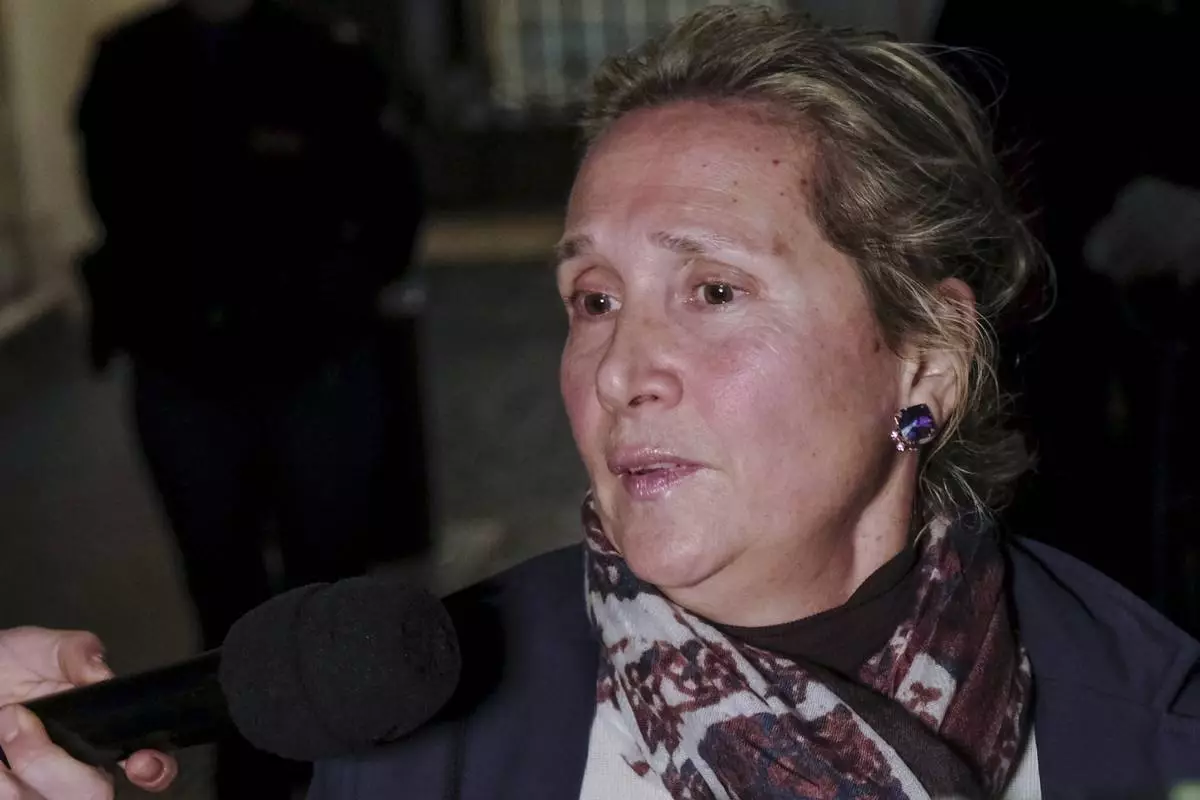
Elisabetta Vernoni, mother of Cecilia Sala an Italian journalist who was detained on Dec. 19 as she was reporting in Iran, leaves Palazzo Chigi after meeting with Prime Minister Giorgia Meloni, in Rome, Thursday Jan. 2, 2025. (Mauro Scrobogna/LaPresse via AP)



